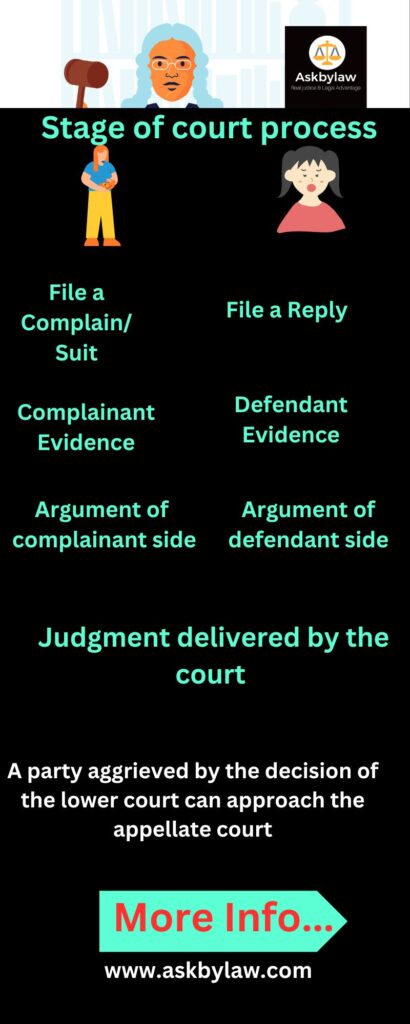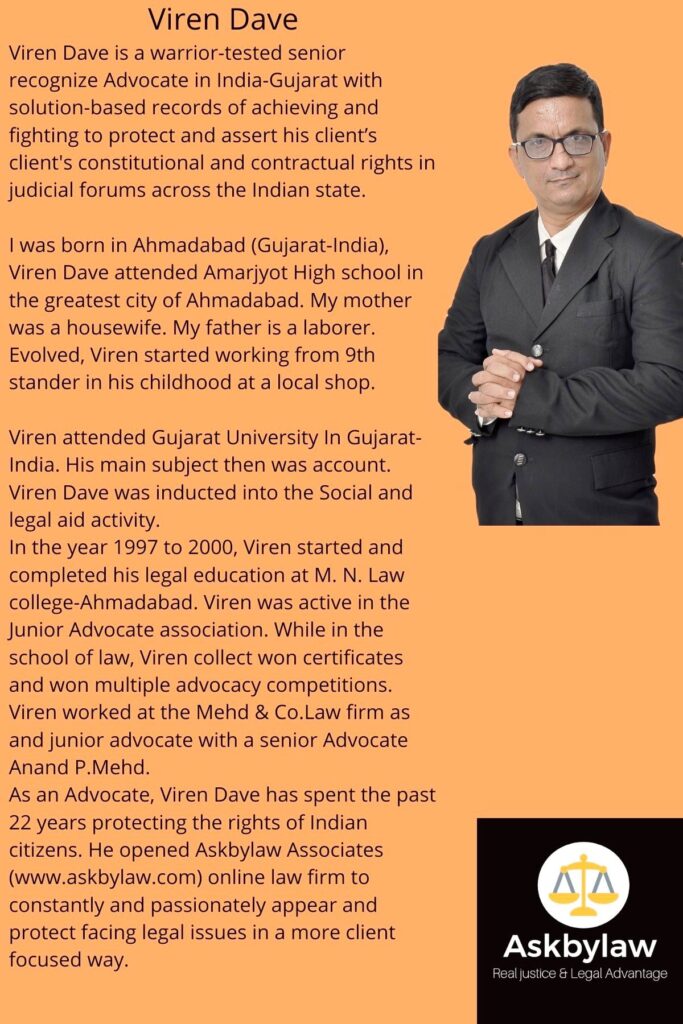Blog article: Now what is your right when you arrest
Hello folks,
Are you listening to me! Ready!
Introduction
Great. what is your right when you arrest? Do you need to participate in discussions on the above-mentioned subject in the title? Are you ready? Bad luck. A national police or government agency to gather accurate information. And or to collect direct indirect evidence regarding the investigation of a crime against a citizen of the country. Thus, arrests are sometimes made for further investigation or to initiate criminal proceedings.
The main thing is to have strong reasons and a strong basis for arresting any citizen. As soon as. If there are not enough strong reasons and eighteen, then the fundamental rights of the citizen may be considered to have been violated.
There is no denying that there is a possibility of violation of fundamental rights in some cases as per the judgment of the Supreme Court of India and various high courts of the Indian county. To that end. Custodial death is an accurate example of this situation.
What are the things to keep in mind and what precautions should take while arresting any citizen? As well as. As well as. Its detailed explanation and reason are given in the Indian Constitution and Criminal Law and Procedural Law.
In the event that a person is arrested for any reason. And. A citizen who has been granted certain fundamental rights under the Constitution of India may use his fundamental rights to present his reality and even defend himself by co-operating in criminal proceedings.
As soon as. Let me now begin a detailed discussion with you about the fundamental rights of a citizen without taking too much time. We hope you enjoy the article. Read more...
Best Legal information online for What is digital payment in Hindi (India) after the 2022 year?
What is arrest law?
what is your right when you arrest? A police or government agency arrests a person for the following reasons.
You see. “41. When police may arrest without a warrant.-
(1) every one police officer may without an order from a Magistrate and without a warrant, arrest any person. Who has concerned in any cognizable offence? And or against whom a reasonable complaint has made or credible information has received, or a reasonable suspicion exists, of his having been so concerned; or
2) Who person has in his possession without lawful excuse, the burden of proving which excuse shall lie on such person, any implement of house-breaking; or
3) Who has been proclaimed as an offender either under this Code or by order of the State Government; or
4) Whose possession anything is found. Which may reasonably suspected to be stolen property and who may reasonably be suspected of having committed an offence. With reference to such thing; or
5) Who person obstructs a police officer while in the execution of his duty. Or who has escaped, or attempts to escape, from lawful custody; or
Part-II
6) Who is reasonably suspected of being a deserter from any of the Armed Forces of the Union; or
7) Who person has concerned in, or against whom a reasonable complaint has been made. Or credible information has received, or a reasonable suspicion exists, of his having concerned in, any act committed at any place out of India. If committed in India. Would have been punishable as an offence. And, for he is under any law relating to extradition. Or otherwise, must liable to apprehended or detained in custody in India; or
8) Who person being a released convict, commits a breach of any rule made under sub-section (5) of section 356. or
9) Whose arrest any requisition. Whether written or oral, has received from another police officer?. Provided that the requisition specified the suspected person to be arrest. And, the offence or other cause for which the arrest is to be made and it appear there from that the person might lawfully be arrested. without a warrant by the officer who can issued the requisition.
- Every one officer in charge of a police station may. In like manual manner, arrest or cause to be arrested any suspected person. In brief. And belonging to one or more of the categories of persons specified in section-109 or section-110.”
-

VIREN S.DAVE
The great legal information on? What are the Disadvantages of court marriage in India under the special marriage Act?
What are the different rights of a person arrested by the police?
1 - The right of a citizen to know the reasons for his arrest
Look it. what is your right when you arrest?. Article 22 (1) of the Constitution provides that no police officer may make an arrest without giving an accused / reason/basis for the detention of any person.
- Section-50 of the Indian Criminal Procedure Code (Cr. P.C) states that every police officer with the power to make an arrest without a warrant should report the person arrested for the crime and other relevant grounds for arrest. And this is the duty of a police officer which he cannot deny.
Indian Cr.P.C. Section 50A of makes it mandatory for the person/police officer who make the arrest to report the arrest to a relative or friend who is interested in it.
As per the Indian Cr.P.C. And which should also mention the crime. As well as the reasons for the arrest of the person.
Cr.P.C. of a police officer executing an arrest warrant. As much as. Section-75 should inform the arrested person about this matter. And arrest warrants should be issued when needed.
2- Right to appear before a magistrate within 24 hours without undue delay
what is your right when you arrest?. Article-22 (2) of the Constitution provides that the arresting police officer must produce the arrested person before a magistrate within 24 hours of the arrest. And failure to do so will result in wrongful detention.
Indian Cr.P.C. According to section 55, if a police officer is making an arrest without a warrant. He may, without any undue delay, bring the arrested person before the magistrate or the police officer-in-charge of the police station in his jurisdiction. Arrests should be made on the basis of conditions.
The arrest of a citizen
what is your right when you arrest?. Indian Cr.P.C. The arrested person shall be produced in court within 24 hours of his arrest. And. Excluding the period required for travel from the place of arrest to the Magistrate's Court as per Section-76.
3- The right of a citizen to be released on bail
If a person has been arrested for a crime and the crime for which the crime has been committed is a bailable offense, then the person should get the release as soon as possible.
Indian Cr.P.C. Section-50(2) provides that the arrested person has the right to be released on bail. And when arrested without a warrant for offenses other than non-cognizable offenses, he has the right to be released on bail by providing information on his rights.
4- The right of a person to a fair and just trial
The legal provision regarding the right of a person to a fair and just trial can be inferred from the Constitution of India as well as many judgments of the Supreme Court and the High Court. Because no clear law has been enacted in this regard.
According to Article-14,22 and 23 of the Constitution, "every person is equal before the law" which means that all parties to a legal dispute should be treated equally.
Nice. The principle of natural justice must be considered in the context of both parties.
The right to a speedy trial was also upheld in "Husseinara Khatun versus Home Secretary, state of Bihar ". Where the honorable court observed, " That the trial should be disposed of as diligently as earlier possible."
5- The right of the arrested person to consult a lawyer
As per Article-22 (1) of the Constitution provides that every arrested person has the right to choose and choose his own lawyer to defend him/her in the court of law for any offense committed by him/her.
Indian Cr.P.C. Article-41D. Allows prisoners to consult with their lawyers even during their interrogation.
Indian Cr.P.C. Article-303 Every alleged convict/offender has the right to be defended by a lawyer of his / her choice. So Even, if criminal proceedings have been initiated against a proposed person.
6- Everyone has the right to free legal aid
Article-39. Article 39A. The government, in an effort to seek justice, established section-39A to provide free legal aid to those in need. In the case of A Khatri versus Equal rights was reaffirmed in the Bihar dispute. And. Where the honorable court said, " That the state should provide free legal aid to the accused person suffering from poverty". And the accused is given the same right to free legal aid in the first case to be presented before a magistrate in court.
In addition, this right to free legal aid for the accused cannot be denied even when the accused himself fails to obtain it. And the main note to remember is that if the government is unable to provide free legal aid to the accused person suffering from poverty. Then the whole trial will be canceled. A famous Sukh Das versus Arunachal Pradesh but it was firmly established. While the Hon'ble Court has said, "The right of the accused suffering from poverty cannot be denied. When the accused fails to apply."
Indian Cr.P.C. Article 304 gives a very important right to every accused who is going to appear in the Sessions Court for the appointment of a lawyer (completely free) at the expense of the state. And as well as if the accused does not have sufficient resources to appoint a lawyer for his case, the court may appoint a lawyer to representing him.
7- The arrested person has the right to remain silent
The right of a person to remain silent is not mentioned in any Indian law. But its power can be derived from the constitutional right against self-crime.
The right of a person to remain silent is mainly related to the statement and confession given by the accused in the court. And, it is the responsibility of the magistrate to see whether any statement or confession made by the accused person was made voluntarily or after coercion and manipulation. And so, for that matter, the police or any other authority is not allowed to force the accused person to say anything in court.
Article-20(2) of the Constitution he reiterated that any person, whether he is an accused or not. And, one person cannot be forced to testify against oneself. This act of self-disclosure is the principle of self-guilt. To illustrate this point, the honorable court upheld the case of Nandini Satpathy versus P. L. Dani. And. In the honorable court observed that "no person shall compel another person to make any statement or answer any question as the accused has the right to remain silent”. And during his interrogation"
8- The right of a person to be examined by a doctor
What is your right when you arrest?. Indian Cr. P.C Article-54 insists that if the arrested person makes a claim. And. That a medical examination of his or her body will lead to a detail which will refute the fact of the crime committed by him/her or some details which may lead to evidence leading to conduct. When the crime. Any other person against his body has full discretion to order the court to conduct a medical examination of the accused person at his request. As well as when he is satisfied that no request has been made to defeat the delay or injustice. At that time it is approved by the court.
9- Additional rights are available to any arrested person
Indian Cr.P.C. Article 55A
states that the sole responsibility for the proper health care and safety of each arrested person rests with that person (police officer). Who has custody of the accused?
This principle was established to protect an arrested person from cruel and inhumane treatment in prison.
Indian Cr.P.C. Section-358.
This is another groundbreaking attempt at natural justice. Where a person unjustly arrested is compensated.
Section-41A of Indian Cr.P.C.
The police officer should give notice to the person who has allegedly committed a cognizable crime to appear at a specific time, date, and place.
Indian Cr. P.C. Article-46.
The manner in which the accused person is arrested. As well as submission to the custody by the accused, physical contact with the body or touching the body.
When an arrested person is convicted of a crime, punishable by death or life imprisonment, or when the accused person is unnecessarily trying to resist. In such a case the police officer should not hit the accused while trying to arrest a person. And arrest by becoming violent and aggressive or when the accused is trying to escape.
Indian Cr.P.C. According to section 49.
A police officer should not detain an accused without making a legal arrest. Or should not be detained.
The West Bengal and ORS landmark case against the famous D.K. Basu "focuses on the rights of the arrested person and compels the police officer to act in a certain way."
The apex court further said that if a police officer is unable to perform his duty properly, he will also be liable for contempt of court and departmental inquiry. Such a dispute may arise in any High Court having jurisdiction over the above case.
Despite numerous attempts to protect the accused from unnecessary torture and inhumane treatment of the arrested person, the number of custodial deaths and police brutality is still common. And to address that, the Indian Supreme Court has issued nine important guidelines for the protection of the accused. This includes amendments to a number of sections of the Indian Cr.P.C. which can be summarized as under:
Cr.P.C. Section-41B.
every police officer authorized for investigation/arrest should provide a clear, visible, and valid badge where the name and designation of the police officer is clearly indicated.
As well as full details of the arrest by an authorized police officer. As such, a cash memo must be prepared along with the date and time of the arrest. And the arrested person has to countersign the cash memo.
-
Cr.P.C. Section-41D
- gives the arrested person the right to a friend or relative or any other person during his / her arrest. Who wants to be with the arrested person.
The Indian police should inform the arrested person of his rights. Anyone can be notified immediately when a person is detained or when they are in custody.
Appropriate entries should be made in the police diary and maintained by the police. Which should provide all the important information regarding the arrest of a person. It includes the details of the person with the arrested person and the details of that person. Who has been arrested?
The official diary of the police should also include the names and additional details of the police officers. Who is a person arrested under the custody of the existing law? As well as medical examinations are carried out. Also at the request of the arrested person, the arrested person should be kept on record for any minor or major injuries. And the inspection memo is supposed to be signed by both the police officers and the arrested person.
Any detainee has the right to meet his or her lawyer in prison and during interrogation.
As well as all copies of the entire document should be sent to the magistrate for his record which should also include the memo of arrest.
Indian Cr.P.C. Section-41C.
Every arrest made by a police officer should be reported to the district and state headquarters within 12 hours of any arrest which also needs to be displayed on a clear board.
The legendary case Joginder Singh Versus The State of Panjab. “That the court observed that for the implementation of Article-21 as well as Article-22 (1) it is necessary that:-
- The person has the right to inform his friend, relative or any other person in his interest about the arrest.
- The person should be informed of all his rights immediately after the arrest of the accused person by the arresting police officer.
- Arrest entry with full details of the person should be made in a diary which should include the name of the person who was informed about the arrest. In another landmark case against the famous Prem Shukla, the Delhi administration, the court observed that "prisoners/detainees have the right not to wear handcuffs during arrest or when certain extraordinary circumstances arise in custody."
The second landmark case Joginder Kumar Versus The State of U.P. “That the court observed that for the implementation of Article-21 as well as Article-22 (1) it is necessary that: -
- The arrested person is entitled to be held in custody. That if he requests to keep a friend, relative, or another person who knows him.
- The arrested person will be informed by the police officer when he is brought to the police station under which provision of right.
- Who was informed about the arrest of this person? Must make an entry in his diary.

Arbitration
References:
- Criminal procedure code
- Constitution of India
- Judgment of D.K.Basu versus state of W.B.
- Joginder Singh Versus The State of Panjab
- Khatri versus the State of Bihar
- Joginder Kumar Versus The State of U.P.
-
Conclusion
What is your right when you arrest?. When a person is arrested for a crime he has committed a crime. And. If he/she is found guilty then the decision to punish the offender for maintaining social balance and peace can be welcome.
But when a person is not convicted and a person is arrested on suspicion only. And. The Constitution of India gives the right to self-defense to the citizen.
While the arrested person is found to be innocent, the police have the primary duty to provide protection to the innocent citizen against unlawful detention. As well as. So that any citizen can move around the country with dignity and freedom and no innocent person has to suffer.
That is, the law says that even if 100 criminals are released, an innocent citizen should not be punished or wrongfully harassed. The law and the constitution give the person the opportunity to obtain bail and to prove his innocence.
You or your family should discuss whether our arrest was made correctly or incorrectly with a lawyer who specializes in criminal law. And it is your moral duty to do justice to the person in your family. If you need any advice in this regard, feel free to contact us and get us a legal opinion to help you with your problem.
Have a great day
Jay Hind Jay Bharat
Are you know about: What is a possession law and remedy?














